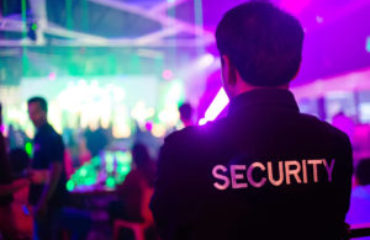Event security is the service everyone wants, and no one wants to pay for
As event professionals, we often think of the attendees’ experiences first – like food and beverage, venue location, and speaker and entertainment considerations – and then tack on event security much later. We often approach it much like we do insurance. We know we need it but tend not to invest enough in it, and if disaster strikes, we find ourselves woefully lacking and unprepared.
However, the awful event catastrophes at the Bataclan Theatre in Paris, the Pulse nightclub in Orlando, and the Bastille Day truck attack in Nice have made it painfully apparent that event security needs to be at the top of our event preparation list.
Event security is now just as essential a part of the attendee experience as lighting or appetizers. And the risk of getting it wrong is exponentially greater than choosing the wrong caterer or needing more chairs.
And even when it is at the top of the list, how much security is enough? And when does the law of diminishing returns apply? Contact BestWORLD Security for assistance.
Here are nine event security tips from security professionals to help ensure your events and staff are prepared for the worst.
-
Assess your event’s security risk upfront.
Not all events carry the same security risk (e.g., a U.S. Senator’s birthday gala carries a different level of risk than your daughter’s sweet sixteen party), so you should first assess if your event is a high, medium, or low risk. The things to consider when determining event security risk include:
- The organization that is hosting or promoting the event.
- The content or context of the event.
- The key individuals are speaking at or attending the event.
- The exhibitors or sponsors related to the event.
In addition, you should assess the likelihood of protests and the presence of local or national media at the event (more cameras and microphones increase the possibility of confrontations and demonstrations). It would help if you also considered the potential vulnerabilities of your chosen venue. For example, outdoor venues are often more complicated to secure than indoor spaces, but indoor spaces may also have fewer escape routes. And then there are always the force majeure “Acts of God” like tornadoes, hurricanes, floods, and earthquakes that must be accounted for.
-
Create an emergency response plan.
Planning for a disaster can mitigate risk, so it’s essential to sit down and create an event emergency response plan. And, if your event is large enough, you can hire an event security service to help you draw one up.
Building such a plan requires close work with your venue and speaking with them about their procedures for mass evacuations, active shooter situations, and moving people into safe areas or rooms. It would help if you also worked closely with your venue to map out evacuation routes and ensure that all routes are marked clearly on event day.
The event security plan should also include a crisis communication plan that outlines how you will communicate with attendees and the general public if disaster strikes. This would consist of creating a list of potential crises, naming your crisis communications team/point people and identifying your communication channels in advance.
Finally, suppose you decide to hire an event security company. In that case, ask them about their staff training procedures/certifications, prominent events they have worked for, references and insurance, and what advanced work they will do.
Read more about: Highly experienced Special Event Security Services in Vancouver
-
Focus first on people and context, then on technology and tools.
Getting the right people on the ground with the proper training and experience is your first step, and this can include not only hiring the right event security firm and supplementing event security guards with crisis prevention training at events.
-
Create a visible security presence.
According to event security experts, hiding your security force or putting them undercover may do more harm than good, mainly because attendees now rely more than ever on event security staff to direct them in times of emergency and distress.
This is because attendees don’t pay as much attention to their environment as they used to. As such, they are not mentally prepared when someone instantly threatens them.
-
Widen your event’s footprint.
Event security risk reduction can start with expanding your event’s physical parameters and widening the radius of your event security, not reducing them. The Bataclan and Pulse environments were dense, concentrated areas, and even the Nice truck incident occurred on a narrow strip of densely populated sidewalk/road.
-
Collect identifying information in advance and check IDs upon entry.
Asking to identify information upfront during the registration process is an excellent first step in confirming the identity of your attendees, though more is needed. You can also ask an attendee to present a valid ID before and before the event and, if possible, match this to the information on their registration or ticket.
-
Make your event as invisible as possible to the public.
Some events like employee appreciation celebrations or board/investor meetings don’t necessarily need to be made public. Still, organizations often put these events on their websites, monthly newsletters, and hotel event announcement boards so the general public can learn about them.
-
Lock down the event WiFi.
Not all event security threats pose a physical danger, with cyberattacks and data theft being two emerging threats that event planners need to address now and in the coming years. One way to minimize these threats is to take some basic steps about the event WiFi.
First, your event WiFi should ALWAYS be password protected, and you should share this password discretely. This means you should refrain from announcing the password from the stage or posting it throughout the venue. Instead, share it through the registration materials and the event app if you offer one.
Usually, WiFi is an additional service offered by your venue, so when negotiating with them, you should ensure two things. First, the network must be secured by a WiFi Protected Access (WPA) standard security protocol. Second, you should ensure the network is equipped with AP-Isolation, which blocks users from accessing other devices logged onto the network.
-
Screen all staff, including venue staff.
Security threats can come from places where you least expect them, including from event and venue staff. This may happen more often than you think.
Don’t gamble with your event’s safety.
Protect your attendees, reputation, and peace of mind with expert event security. Contact BestWORLD Security today for a comprehensive security assessment and tailored plan, Sign up now
Our experienced team will help you:
- Identify potential threats and vulnerabilities
- Develop a robust emergency response plan
- Create a visible and reassuring security presence
- Implement best practices for attendee safety
- Please don’t wait until it’s too late. Take control of your event’s security now.
Contact BestWORLD Security today: 604-282-3733 | MyService@BWSinc.ca | Office in Vancouver


